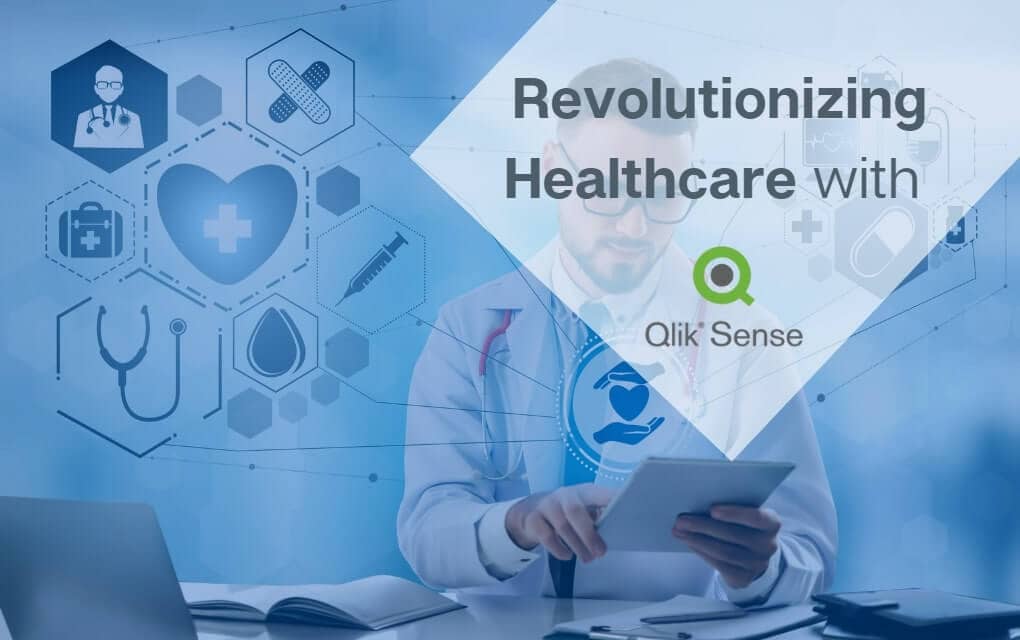Vipul Sharma,12th April
The healthcare sector affects the daily lives of millions of people and is one of the most significant sectors in the world. With the development of b
Business intelligence technologies like Qlik Sense, healthcare providers can now use data to enhance patient outcomes and smoothly run operations.
This blog will explore how Qlik Sense is revolutionizing healthcare with data-driven decision-making, improving patient outcomes, and streamlining operations.
Table of Contents
Real-time Insights into Patient Care
One of the key benefits of Qlik Sense is its ability to provide real-time insights into patient care. With Qlik Sense, healthcare providers can monitor patient data in real-time, identify potential health risks, and take corrective action before problems arise.
This will improve patient outcomes and reduce hospital readmission rates, which is a key goal for healthcare providers.
Streamlining Operations with Real-time Data
In addition to improving patient outcomes, Qlik Sense is also helping healthcare providers streamline their operations.
By providing real-time data on resource utilization, Qlik Sense allows healthcare providers to optimize their operations and reduce costs. This can be particularly beneficial for healthcare providers who are operating on tight budgets.
Comprehensive View of the Organization
Another advantage of Qlik Sense is its ability to provide healthcare providers with a comprehensive view of their organization.
By using Qlik Sense’s dashboard capabilities, healthcare providers can track key performance indicators and monitor their progress toward achieving their goals. This can help healthcare providers identify areas for improvement and make data-driven decisions that will drive their organization forward.
Suitable for Small and Medium-Sized Healthcare Providers
The benefits of Qlik Sense are not limited to large healthcare organizations. Small and medium-sized healthcare providers can also take advantage of Qlik Sense’s advanced analytics capabilities.
With Qlik Sense, small and medium-sized healthcare providers can access real-time data on patient care, resource utilization, and other key metrics. This allows them to make data-driven decisions that improve patient outcomes and keep a track of their operations.
Qlik Sense Vs. Other Business Intelligence Tools
Qlik Sense is not the only business intelligence tool available to healthcare providers. Other tools like Power BI and Tableau offer similar capabilities. However, Qlik Sense has some unique advantages that make it particularly well-suited to the healthcare industry.
For example, Qlik Sense’s data visualization capabilities allow healthcare providers to easily communicate complex data sets to patients and other stakeholders. This is then helping healthcare providers build trust with patients and improve patient engagement.
Revolutionizing Healthcare Support Services
In addition to its technical capabilities, Qlik Sense also offers healthcare providers a range of support services. Qlik provides training and certification programs that can help healthcare providers get the most out of their investment in Qlik Sense.
Qlik also has a dedicated support team that can provide technical assistance and helps healthcare providers troubleshoot any issues that arise.
Conclusion
As the healthcare industry continues to evolve, the importance of data-driven decision-making will only continue to grow. Qlik Sense is just one example of the powerful business intelligence tools that are now available to healthcare providers.
By embracing these tools, healthcare providers can improvise patient outcomes, smoothly run operations, and stay ahead of the curve in an increasingly competitive industry. Business intelligence tools such as Qlik Sense, Power BI, and Tableau are increasingly becoming essential for healthcare organizations to stay competitive in today’s data-driven world. By utilizing these tools, healthcare professionals can gain valuable insights that can be used to improve patient care, reduce costs, and increase efficiency.
If you are a healthcare professional or organization looking to stay ahead of the curve, it’s time to consider implementing business intelligence tools in your operations. Grasping these technologies can give you a significant competitive advantage.

